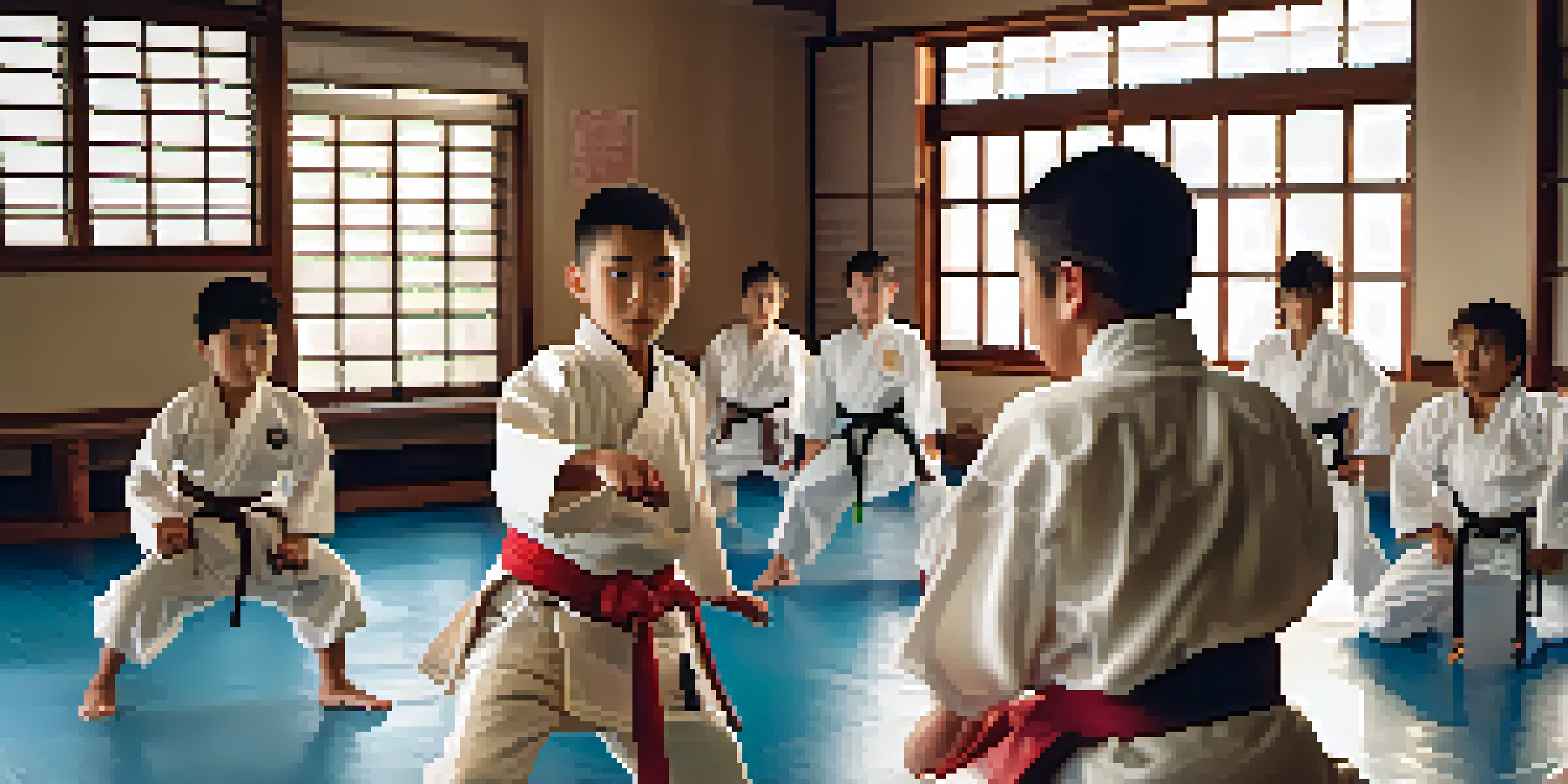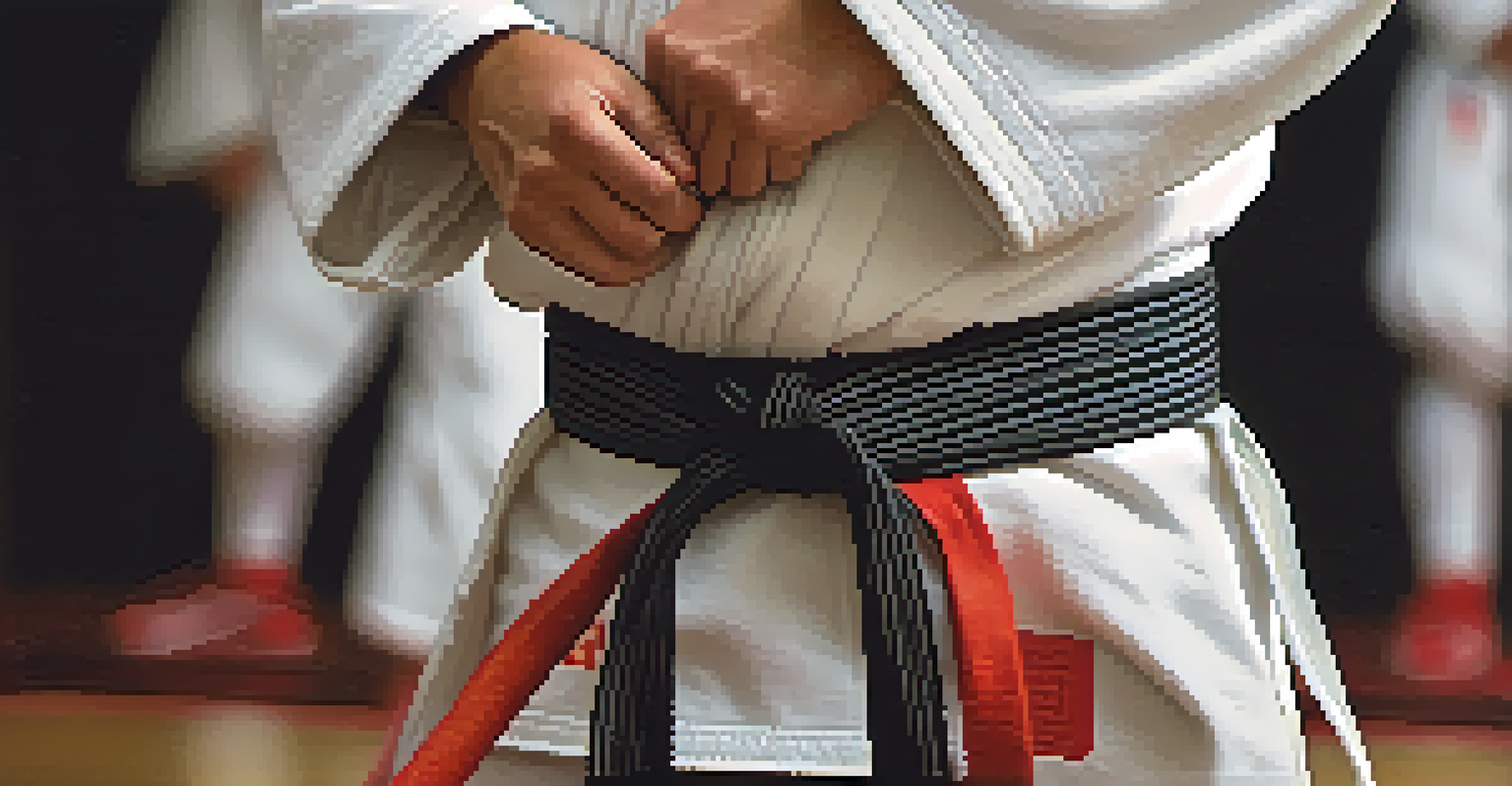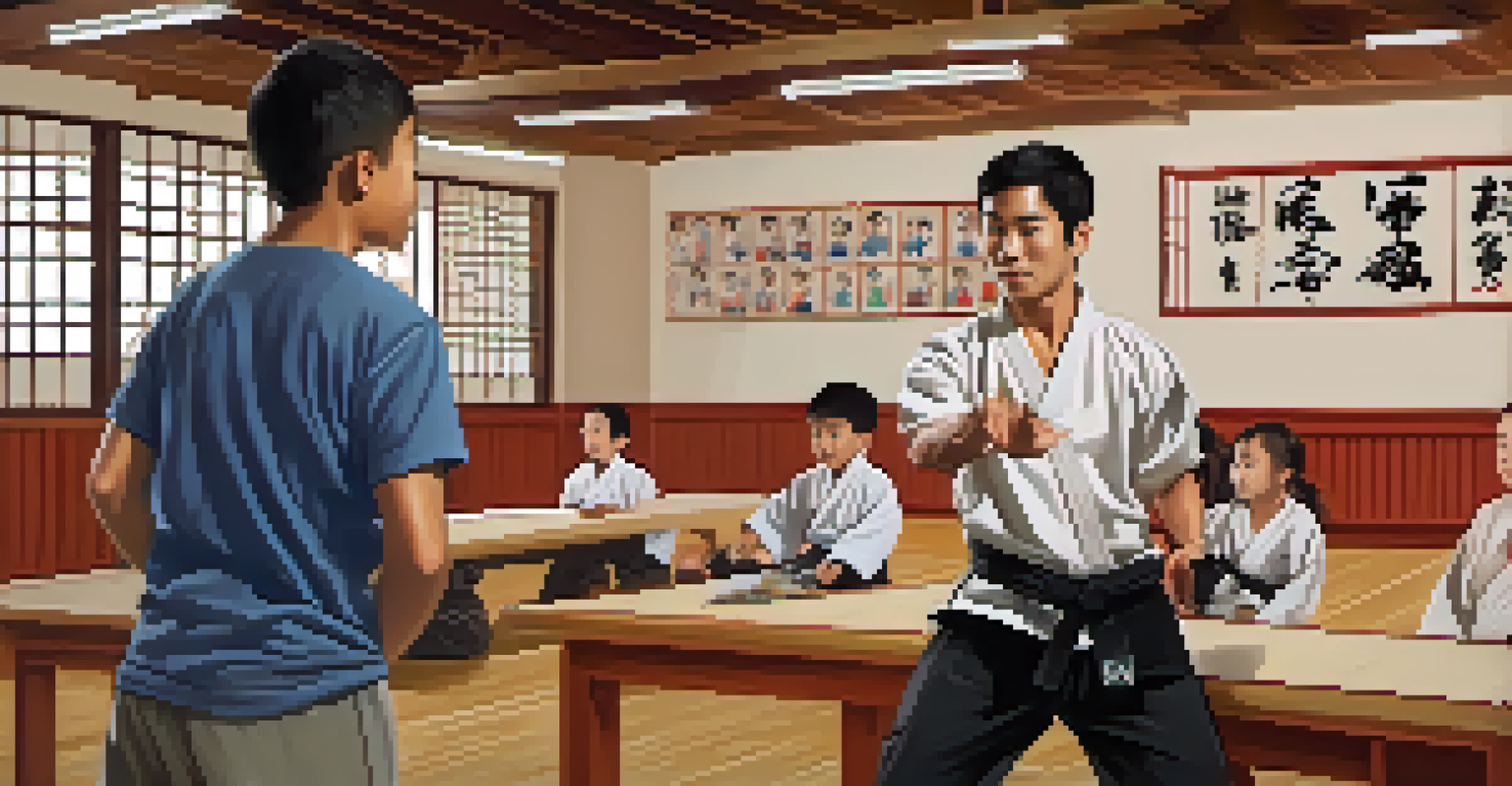Skill Development Through Martial Arts for At-Risk Youth

Understanding the Challenges Faced by At-Risk Youth
At-risk youth often encounter a range of challenges, from unstable home environments to limited access to positive role models. These factors can lead to low self-esteem, poor social skills, and a lack of direction in life. Understanding these challenges is crucial for developing effective intervention strategies that can provide support and guidance.
The greatest weapon against stress is our ability to choose one thought over another.
Many young people in tough situations may feel isolated or misunderstood, which can exacerbate feelings of hopelessness. The need for connection and support is essential during these formative years. By recognizing the struggles faced by at-risk youth, we can better appreciate the transformative potential of programs designed to help them.
Martial arts programs offer a safe space for these youths to learn, grow, and connect with peers and mentors. This understanding sets the foundation for how martial arts can effectively address their unique needs and challenges.
The Role of Martial Arts in Skill Development
Martial arts is more than just physical training; it's a holistic approach that enhances mental, emotional, and social skills. Through structured practice, participants learn discipline, focus, and perseverance, all of which are crucial life skills. These attributes help at-risk youth navigate their challenges more effectively.

In martial arts, students are encouraged to set personal goals, whether it's mastering a technique or achieving a belt rank. This goal-setting process fosters a sense of accomplishment and builds resilience. Each small success in their training can translate into newfound confidence in other areas of their lives.
Martial Arts Builds Confidence
Through skill mastery and supportive training environments, martial arts significantly boosts self-esteem in at-risk youth.
Moreover, martial arts instills respect and teamwork, as practitioners often train in groups and participate in sparring. This social aspect helps young people form positive relationships, reducing their feelings of isolation and encouraging supportive friendships.
Building Confidence and Self-Esteem Through Training
One of the most significant benefits of martial arts for at-risk youth is the boost in self-confidence. As they learn new skills and see their progress, they begin to believe in their abilities. This newfound confidence can have a ripple effect on their self-image and interactions with others.
Success is not final, failure is not fatal: It is the courage to continue that counts.
In martial arts, facing challenges head-on is an integral part of training. Students learn to confront their fears, whether it's executing a difficult move or participating in competitions. Each challenge overcome builds a stronger sense of self-worth and assurance.
The supportive environment of martial arts classes also encourages participants to celebrate each other’s achievements. This camaraderie helps reinforce positive self-esteem, making them feel valued in a community where they might otherwise feel marginalized.
Developing Discipline and Focus in Martial Arts
Discipline and focus are key components of martial arts training, and they are vital skills that can help at-risk youth succeed in various aspects of life. Students learn to concentrate on their movements, techniques, and goals, which enhances their ability to focus in school and other activities. This shift in mindset can lead to improved academic performance and better decision-making.
Through regular practice, participants develop a routine that emphasizes commitment and hard work. This structure not only helps them stay engaged in their training but also cultivates a sense of responsibility that can extend beyond the dojo. Learning to prioritize tasks and stick to a schedule prepares them for future challenges.
Developing Essential Life Skills
Martial arts enhances discipline, focus, and resilience, equipping at-risk youth with crucial skills for personal and academic success.
Additionally, the art of self-control is emphasized in martial arts. Students learn to manage their emotions, especially in high-pressure situations, which can reduce impulsive behaviors. This emotional regulation is beneficial in promoting healthier relationships and interactions in their daily lives.
Encouraging Positive Relationships and Social Skills
Martial arts classes create a unique environment that fosters positive relationships among peers and instructors. As students work together, they learn the importance of teamwork, communication, and mutual respect. These social skills are essential in helping at-risk youth build supportive networks.
The shared experience of training encourages camaraderie and trust among participants. Young people often find friendships in the dojo that extend beyond the training mat, leading to a sense of belonging. This sense of community can be particularly important for those who may lack support in other areas of their lives.
Moreover, instructors often serve as mentors, providing guidance and encouragement. These positive role models can inspire youth to strive for better futures while reinforcing the value of healthy relationships. This holistic approach helps at-risk youth develop vital social skills that will benefit them throughout their lives.
Fostering Resilience and Coping Strategies Through Martial Arts
Martial arts training equips at-risk youth with resilience skills that help them bounce back from setbacks. The practice of pushing through challenges during training teaches them that failure is not the end but a stepping stone to improvement. This perspective shift is crucial for developing a resilient mindset.
Furthermore, martial arts often involve scenarios that require quick thinking and adaptability. Participants learn to respond to unexpected situations calmly and effectively, skills that are invaluable in real-life scenarios. This ability to cope with stress and adapt to change can enhance their overall quality of life.
Fostering Positive Relationships
The collaborative environment of martial arts encourages teamwork and mentorship, helping at-risk youth build strong, supportive networks.
In addition to physical resilience, martial arts also nurture emotional resilience. Students are encouraged to express their feelings in a constructive way, fostering emotional intelligence. This combination of physical and emotional strength prepares them to face life's challenges with confidence and determination.
Creating Opportunities for Personal and Professional Growth
Participation in martial arts can open doors to various personal and professional opportunities for at-risk youth. As they gain skills and confidence, they may be more inclined to pursue academic and vocational paths that align with their interests and goals. This shift in perspective can lead to a more hopeful outlook on their futures.
Moreover, many martial arts programs offer leadership opportunities, such as instructor training or mentoring younger students. These roles not only enhance their skills but also empower them to give back to their communities. This sense of purpose can be incredibly motivating and fulfilling.

Additionally, the discipline and commitment learned through martial arts can be advantageous in job interviews and professional environments. Employers often seek individuals who are dedicated, resilient, and capable of teamwork. The skills acquired through martial arts training can make at-risk youth more competitive in the job market and pave the way for brighter futures.